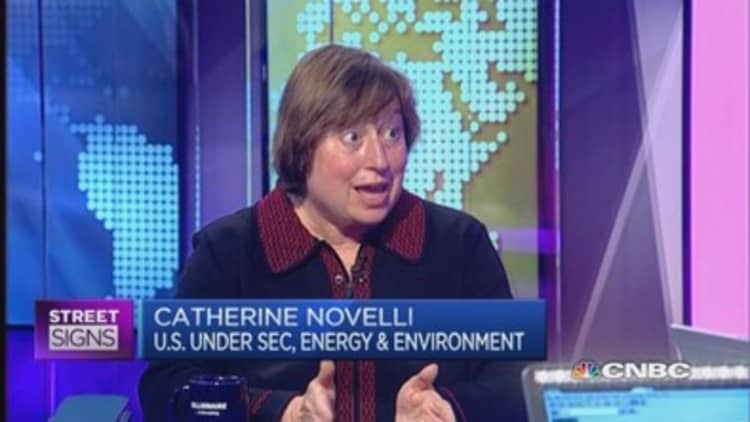China could have outsized influence over a new Beijing-backed international development bank under a proposed shareholding structure likely to be discussed at a meeting of member nations in Washington this week, sources say.
The group will meet on the sidelines of the annual meetings of the International Monetary Fund and World Bank in the U.S. capital, said an Indian government official familiar with the plan. India was one of the first nations to join the new bank.
China has proposed that Asian nations own three-quarters of the Asian Infrastructure Investment Bank (AIIB), a larger overall stake than would be warranted were ownership decided by economic weightings alone, given European heavyweights Germany, France, Britain and Italy are also members.
Each Asian member will then be allotted a share of that 75 percent quota based on their economic size, two Japanese sources said - a formula that would guarantee China the largest single voice inside the bank.

China has outlined details of the bank to Japan in an effort to get Tokyo to sign up, the sources said. However, Tokyo remains non-committal due to its close relationship with the United States, which has urged nations to be wary of the AIIB.
"Looking at GDP-based contributions, if the No. 1 and No. 3 (the United States and Japan) aren't in, then China will have an overwhelmingly large quota and voice," said one Japanese official. "No country would be able to challenge China. If Japan were in, it would have considerable influence."
China's finance ministry did not immediately respond to a request for comment.
Read MoreIMF, World Bank throw weight behind China-led bank
The United States had earlier cautioned nations about joining the bank, citing what it called a lack of transparency and doubts about lending and environmental safeguards, and how much influence Beijing would wield.
But its major allies - Britain, France, Germany, Australia and South Korea - signed up anyway.
Not a political alliance
Jin Liqun, secretary-general of China's interim secretariat which is establishing the AIIB, said at a forum in Singapore on Saturday that although China would have the biggest share in the bank, it would not dominate its operations.
"AIIB is a bank, not a political organisation or political alliance," Jin was quoted as saying by China's official Xinhua news agency. He said the AIIB would be "clean, lean and green".
China has said it will announce the AIIB's list of founder members on Wednesday, but it is not clear if the shareholding structure will also be finalized this week.
The Indian official said Asia's total ownership would be between 70 and 75 percent depending on whether Japan joined or not.
Read MoreAsia Infrastructure Investment Bank gambit has US on edge
A detailed method of determining the breakdown of national shareholdings had yet to be decided, though it could be based on a country's nominal gross domestic product or its GDP calculated on a purchasing-power-parity basis, or a mixture of the two. Purchasing power parity would give more weight to developing nations than to rich economies such as Japan.
The AIIB has drawn applications from more than 50 nations from Asia, Europe and the Middle East despite U.S. misgivings.
Beijing says it will not hold veto power inside the AIIB, unlike the World Bank where Washington has a limited veto.
Beijing has also said a board of governors will control the operations of the new bank. Founder members will initially pay up to one-fifth of the AIIB'S $50 billion authorized capital, which will eventually be raised to $100 billion.
Brazil, Russia, India, China and South Africa will also hold a meeting in Washington this week to iron out details of another international development bank, the $100 billion BRICS bank launched last year, officials in Brasilia and Moscow said.
"The idea is that everything will be ready for 2016," said an official in Brasilia, adding that governance issues will be taken up in Washington.

